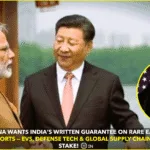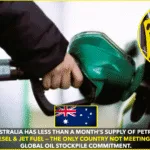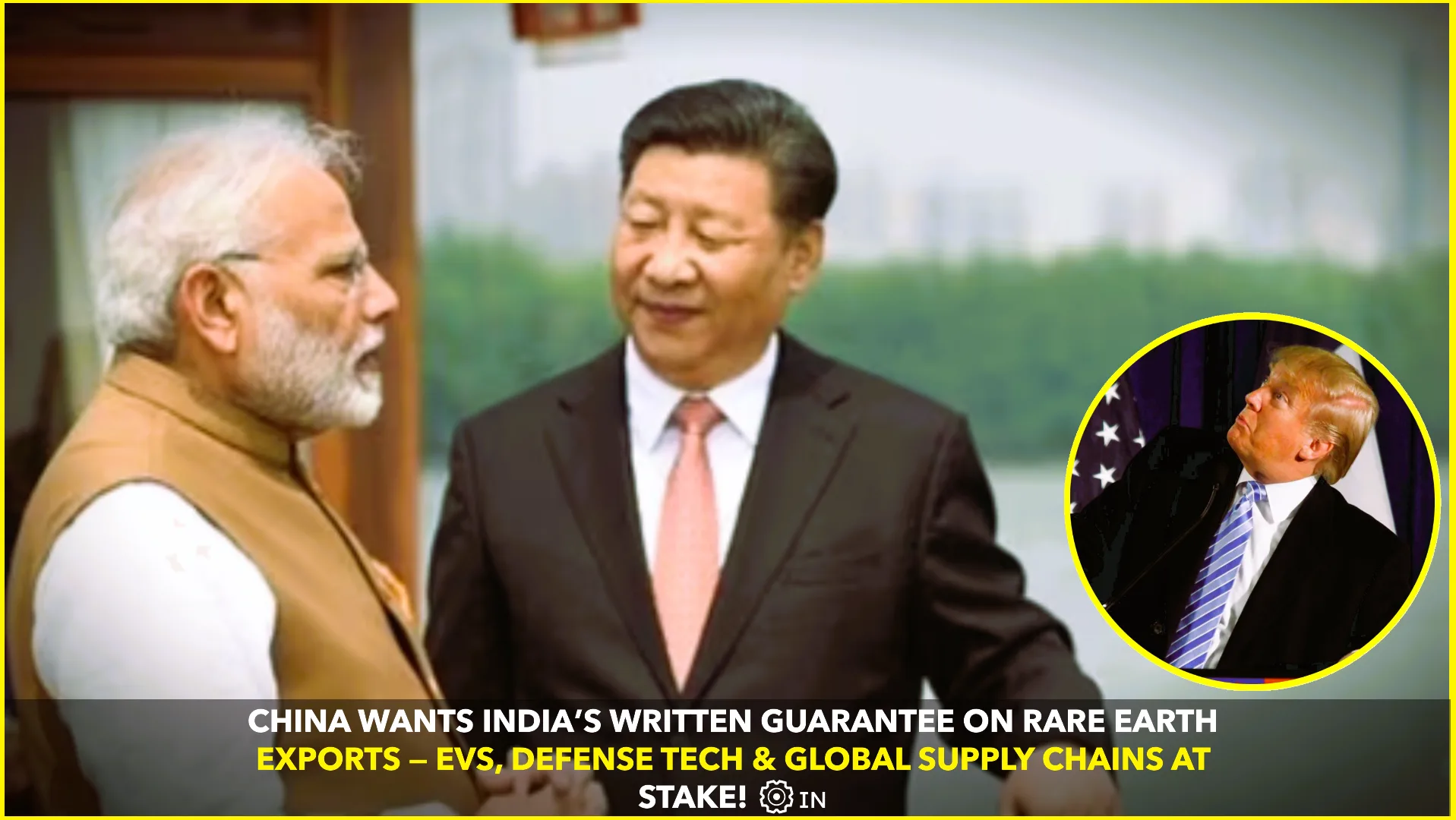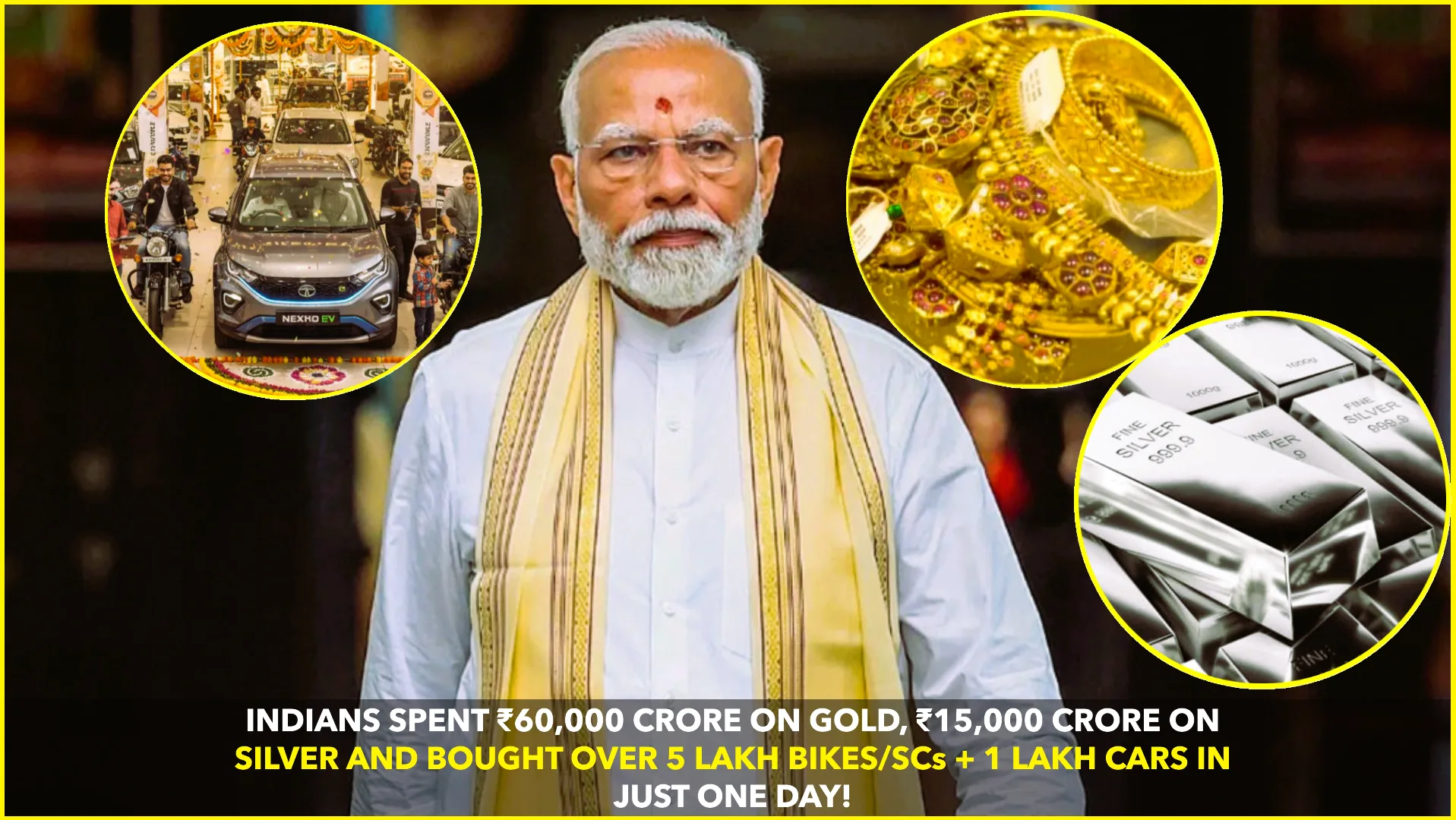DIPLOMATIC TENSIONS RISE
China has reportedly asked India for a written guarantee ensuring that heavy rare earth magnets exported from Chinese companies to Indian firms are not re-exported to the United States. These magnets are critical for electric vehicles (EVs), defense systems, and renewable energy production.
According to The Times of India, Beijing’s demand follows new export rules imposed under its “national security” framework, which restricts shipments of rare earth materials to foreign nations without strict end-use documentation. (Times of India)
THE HEART OF THE ISSUE
Rare earth elements may sound obscure, but they are indispensable in building the motors and batteries that power EVs, jet engines, and missile guidance systems. China currently controls around 70% of global rare earth production and 90% of its refining capacity, giving it enormous leverage in the world’s green and defense industries.
Beijing’s latest move comes amid growing global attempts to diversify supply chains away from China, particularly by the U.S., which views these minerals as strategic assets. According to The Guardian, China’s export controls are being justified under “national security” but are seen globally as a strategic chokehold on competitors. (The Guardian)
INDIA’S STRATEGIC BALANCE
For India, the situation is delicate. New Delhi relies heavily on Chinese imports for heavy rare earth magnets used in EV manufacturing, wind turbines, and defense production. However, India also shares strong trade and technology ties with the United States, making Beijing’s condition politically sensitive.
A report by Business Standard noted that Indian companies have already been asked to submit end-user certificates to Chinese suppliers, affirming that the imported materials will not be used for military purposes. But China now wants an official, government-level assurance that none of these materials will indirectly reach American defense or tech sectors. (Business Standard)
GLOBAL STAKES AND SUPPLY PRESSURE
The United States and the European Union have been coordinating responses to counter China’s tightening grip on critical minerals. Reuters reported that the EU is working with Washington and allies like India to reduce dependency on Chinese rare earths and to secure alternative global sources. (Reuters)
Meanwhile, India has been trying to expand its domestic mining and refining capacity through collaborations with Australia and Japan. But these efforts remain in the early stages, meaning India currently has limited bargaining power.
According to The Economic Times, India is also exploring joint ventures with state-run enterprises to reduce import dependency by 2030. However, such plans face technological and environmental hurdles, as rare earth extraction is highly complex and pollutive. (Economic Times)
THE GEOPOLITICAL UNDERCURRENT
China’s demand comes amid heightened U.S.–China rivalry in global technology and energy supply chains. Washington has previously warned that if Beijing weaponizes exports of critical materials, countries may “decouple” from Chinese supply chains altogether. (Financial Times)
Experts believe Beijing’s latest move toward India could be a preemptive tactic—an attempt to control any possible backdoor supply of Chinese-origin minerals into U.S. industries through India.
INDIA’S NEXT MOVE
India faces a strategic dilemma:
- Complying with China’s request might secure short-term access to rare earth materials but could strain relations with the U.S.
- Rejecting the condition risks disrupting critical supply chains for EV and defense sectors at a time when India is pushing its “Make in India” manufacturing drive.
According to Forbes, global investors are watching closely as these trade tensions could shape future alliances in the green tech race. India’s ability to walk this diplomatic tightrope will determine whether it can emerge as a global hub for EV manufacturing and clean technology. (Forbes)
BOTTOM LINE
China’s push for a written assurance from India marks a significant shift in global trade dynamics — turning minerals into tools of diplomacy. India must now balance economic pragmatism with strategic independence, as the world watches how this rare earth standoff reshapes power in the 21st-century supply chain.










